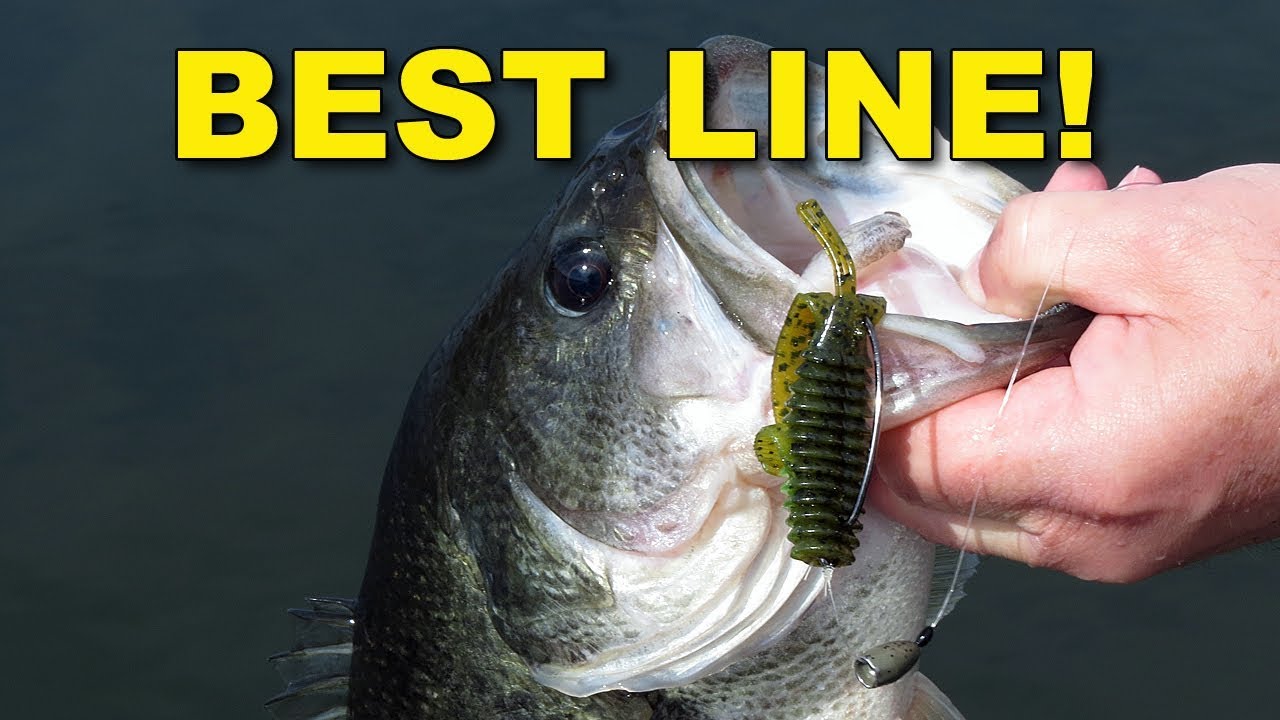By now most of us have had experience with the new versions of braided line. Opinions of the line vary from each fisherman of its uses and applications. Many fishermen use the line for a few special techniques and use monofilament for the rest of their bass fishing. After being on the market for a couple of years the craze for braided line has subsided somewhat. At first, it seemed as though the braided line would end every fisherman’s worst nightmare of breaking a fish off. For some fishermen, this may be the case but for myself and many other fishermen that I have talked to, it was not as “bulletproof” as we perceived it to be. Now I am certainly not advocating that braided line is weak I am just referring to some of the realities of fishing braided line through experiences of many fishermen. And through this type of communication, you may be able to pick up tips as I have to give you more success with braided line and monofilament.
Like the rest of the middle-aged and younger fishermen, I grew up bass fishing with monofilament. Developing confidence in the monofilament took years. Not just having confidence in the line itself but confidence in my selection of the right pound test for each method of fishing. Also learning to push the limits of the line when leaning on fish or trying to overpower one around timber was not something that could be learned overnight. I think for these very reasons I hear so many various comments, positive and negative about braided line. It has only been a few years since the braided line has been on the market and fishermen have used the line long enough to comment on the line through experience.
Of course, we know that braided line has very little stretch, is extremely strong, and thin in diameter. Automatically flipping and pitching a jig or Texas Rig comes to my mind because of the powerful hooksets that come with this territory. My problem when I first started using braided line for these techniques is that when I got bit I would resort to my old monofilament eye-crossing hookset. The first few times I broke the hook of my Texas Rig right at the kink shank of my worm hook. On another hookset, I broke the reel seat and sent the reel slamming through the first two eyes of my rod. Finally learning that I could get the same result by using a milder hookset with braided line I began to have successful hookups without tearing up tackle. However at times, I would catch myself setting the hook too hard with braided line and something would give, whether it be the hook, my rod, or the line itself. One way to solve this problem is to have the drag set so that even if you set the hook extremely hard it will let out some line to compensate for the power.
Using braided line on the Carolina Rig has been my favorite use of the line yet. Being that the line has very little stretch the bottom features are not absorbed in the line and you can feel every detail and feature of the bottom. The line is so sensitive that it seems as though you can hear the features through your hands. Using a fifteen to twenty-pound test monofilament leader when Carolina Rigging has been common among fishermen using braided line. The monofilament leader takes some of the shocks out of the hookset and gives you just a little more of a threshold when you are detecting a strike. Also if you hang the rig up on the bottom the monofilament will break first if the hook is hung and all you have to do is add a leader and hook rather than start all over.
Many fishermen use the thin diameter of the braided line for getting crankbaits to dive to deeper depths. Using a braided line in these bass fishing situations is like changing to a new kind of rod or reel, cranking with braided line is so much different than with monofilament. Relying on the stretch of monofilament and the shock-absorbing recovery of a fiberglass rod is confidence in me that would be hard to replace with the tricks of braided line.
Braided line can fit into your arsenal somewhere no matter what type of fisherman you are. I tend to drift back and forth from monofilament and braided line in a few situations but have confidence in both. Definitely, some of the new generations of young fishermen who are raised bass fishing with a braided line will use it exclusively and probably uncover some new techniques by doing so.

